Your hair is your calling card. Daily life, bad habits, or unforeseen circumstances can leave it dry and dull. However, it doesn't have to be!
Before we share our solutions for combating dry hair, let's start by understanding what dry hair actually is. Remember that while hair is a "dead" substance, unlike skin, which is alive and active, it's actually biochemically active! This means we can repair it, give it shine and strength, but not with the same mechanisms as skin.
So, the notion of hydration is out, because hair does not retain water. On the other hand, we can make it have "chemical" reactions to repair its protein, and apply more or less complex products to cover it. We call these film-forming products, because they will create a protective layer on the hair fiber, making it softer and more supple.
Repair is a very complex topic, claimed by many cosmetic brands, without providing any proof. For now, few hair product brands actually repair the hair fiber, and this is almost nonexistent in natural hair products. For split ends, there's no solution; you have to cut them!
But don't panic! LAO is here to help you fight dry hair by adopting a routine that will prevent future damage, while mitigating the damage already done!
Why is hair dry?
First, remember that certain hair types, such as curly, coily, and kinky hair, tend to appear drier due to their structure. Unlike straight hair, coily, curly, and kinky hair has a spiral or curved shape, which makes it harder for the natural oils produced by the scalp to reach the ends.
However, this dryness is not inevitable, and this hair simply needs proper care.
Pollution and UV exposure
Hair, like skin, is exposed to environmental stressors daily. Air pollution, composed of fine particles and toxins, can accumulate on the hair and scalp. The sun's UV rays, especially UVA rays, are another daily aggressor!
Excessive exposure to UV rays and pollution severely degrade keratin , a protein essential for hair health, by causing oxidation and releasing free radicals (just like on the skin). Sea water and chlorine also damage hair, the former because of the salt it contains, which crystallizes on the hair, the latter because of the chemical reaction of chlorine on the hair.
In the summer, "UV protective" products and mists are popping up everywhere. Be careful not to be fooled, as many of these mists or oils haven't actually been tested on hair, especially for their very specific anti-UV effect. It's best to look at the brand's claims: have they conducted strand tests to prove their claims?
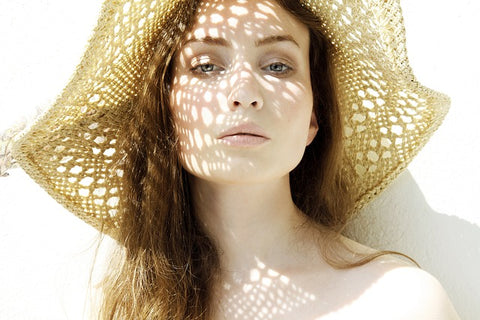
Washing-related factors: Stripping shampoos and sulfates
The choice of shampoo plays a crucial role in hair health. Unfortunately, many shampoos on the market contain sulfates, powerful but stripping foaming agents. These sulfates, such as sodium laureth sulfate (SLS) or lauryl sulfate, can strip the scalp of its natural protective oils and sensitize it, creating dandruff. The ends of the hair are left feeling permanently dry unless the effect is offset by a film-forming active ingredient, whether natural or not.
Choosing a gentle, natural shampoo is essential for combating dry hair and maintaining strong, healthy hair.
Styling: Straighteners, Curling Irons, Drying
Styling habits also play a significant role in hair dryness. Frequent use of straighteners, curling irons, or aggressive blow-drying with a hair dryer on high heat can damage the cuticle, the hair's protective outer layer. When the cuticle is weakened, hair is more susceptible to oxidation, heat, and friction, and becomes dry and brittle.
To avoid dry hair after using your hairdryer, it is recommended to use heat-protecting products. Be careful, however, as these are often synthetic and derived from petrochemicals.
Dry hair: what to do?
Taking care of your scalp and fighting dry hair
A healthy scalp is the key to shiny hair. It's responsible for the production of sebum via the sebaceous glands. Sebum acts as a natural lubricant, coating the hair with a thin layer, preventing friction and thus tangles, and creating a protective barrier!
Its production can be influenced by many factors, including age, gender, hormones, and even hair care habits. A lack of sebum can lead to imbalances... and create not only dry hair problems, but also an uncomfortable scalp.
Product side: choose the right shampoo
Shampoo is the cornerstone of any hair care routine. It can either support your efforts to maintain a healthy scalp or undermine them. A shampoo that's too harsh will, unfortunately, neutralize the benefits of your entire routine.
At LAO, we have spent two years developing 100% natural shampoos , whose nature and effectiveness are scientifically proven. These products go far beyond simple soaps; they are real treatments dedicated to the health of the scalp.
To do this, LAO has incorporated very gentle cleansing agents, in complete opposition to sulfates, present in most shampoos, under names such as "Sodium Laureth/Lauryl Sulfate (SLS)."
LAO favors gentle cleansers such as glucosides, derived from sugar, including "Decyl Glucoside" or "Capryl Glucoside", which foam very well!
Washing your hair with a gentle, natural shampoo is key to maintaining scalp health, and it will pay you back by giving you stronger, thicker, and healthier hair.
The care aspect of LAO shampoos is provided by the oils and hydrosols they contain. For example, in our Purifying shampoo , we find nettle hydrosol, known for its sebum-regulating action.
As for the Nourishing Shampoo , it contains a lot of soothing lemon balm hydrosol, combined with hemp oil, making it an ideal choice for sensitive scalps. It's the perfect combination to gently wash and nourish dry hair.
Combine the Nourishing Shampoo with the LAO Conditioner for a 100% natural routine against dry hair.
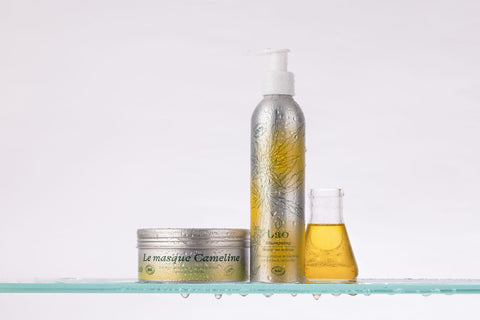
For personalized advice on how to restore a healthy scalp and hair, take the LAO diagnosis ! This online diagnosis is quick, and will allow you to assess your hair, then give you tips on products, lifestyle and nutrition!
How to take care of your dry lengths
Apply vegetable oils
Vegetable oils are invaluable allies in the fight against dry hair. However, it's essential to select oils based on your hair thickness to avoid weighing it down or leaving it feeling greasy.
For very dry hair, castor oil, rich in fatty amino acids, is a safe bet. Argan oil is packed with vitamins and antioxidants that give hair suppleness, shine, and softness, and coconut oil penetrates the hair very well.
Finer hair will prefer lighter options like hazelnut oil or jojoba oil! They coat without weighing it down, leaving hair soft and silky.
Tip for storing your hair oils: Place them in tinted glass bottles with a dropper! The tinted glass will protect the oil from UV oxidation and preserve its benefits. The dropper will allow you to apply the oil to your entire head, as well as your hair, strand by strand.
To maximize benefits, we recommend creating blends of plant oils. This allows you to target multiple hair needs in a single application. For example, combining castor oil with jojoba oil can treat very dry hair and stimulate hair growth.
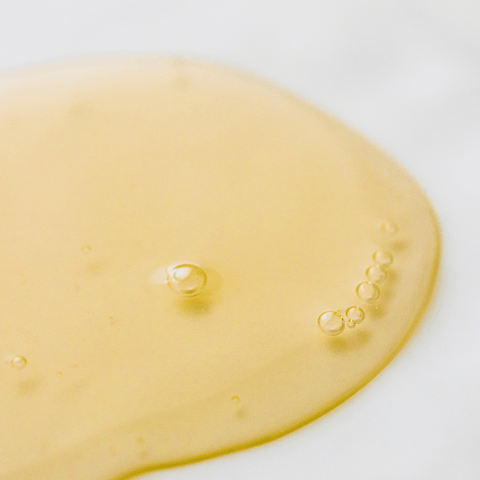
Homemade treatments for dry hair: a real solution?
Homemade treatments, while popular, don't always guarantee positive results, especially when you have dry hair. In fact, they can often lead to wasted food. Choose tested hair products specifically designed to improve the health of your hair.
Although homemade treatments have gained popularity in recent years, it's important to understand that their effectiveness isn't always guaranteed. Often, these homemade mixes can turn into a race to waste food, as the results aren't always as expected.
Eggs, yogurt, honey, and other kitchen ingredients are often used for homemade hair masks. However, it's important to note that these ingredients weren't specifically formulated to address hair needs. In fact, they can even have negative effects on hair if not properly combined. Just because your hair looks better in the moment doesn't mean it will stay that way over time, or that the mixture won't damage your hair fiber in the long run!
Tested hair products, on the other hand, are formulated with ingredients specifically selected to improve hair health. They are designed to provide specific benefits, whether for nutrition, repair, or protection. By choosing quality hair products, you ensure your hair receives targeted and effective care, without waste!
Daily tips to prevent dryness
Brush your hair
It's not the first thing you think of, but it's true! Above, we explained that sebum is specifically designed by the body to protect the hair and scalp.
By brushing your hair, you will spread the sebum from the scalp to the ends, which will create a very thin layer on the hair fiber, and will be much more beneficial on dry hair than oils or even silicones! For this, it is better to opt for a horsehair brush, such as boar bristle.
On the other hand, avoid letting sebum build up on the roots, and therefore spacing out your washes too much. The latter, with its highly acidic pH, can damage the scalp and cause itching.
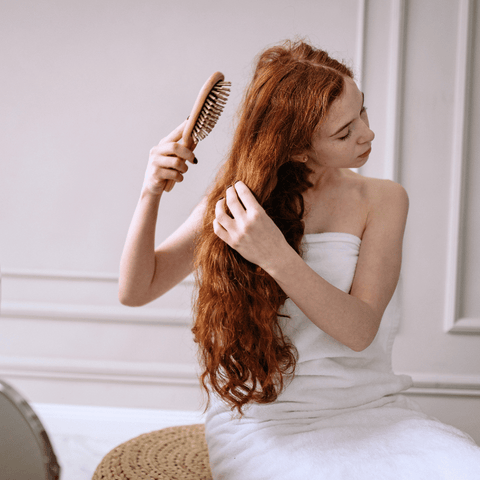
Curling your hair without heat
Say goodbye to curling irons and curling tongs that burn your hair! You can curl your hair in just a few steps and without heat using simple tools, like a satin or silk "boudin." Before going to sleep, place it on your head and wrap it around your hair, from front to back, strand by strand. Don't forget to detangle your hair first, to avoid the opposite effect!
When you wake up, untie your hair and you'll have beautiful, bouncy, light curls, without having to use heat!
Protect your hair
Protect your hair at night by tying it into a loose braid. You'll wake up with slight waves, avoid knots, and reduce the chances of friction on your pillow! To avoid this, you can also choose a silk pillowcase , as it's much softer on your hair.
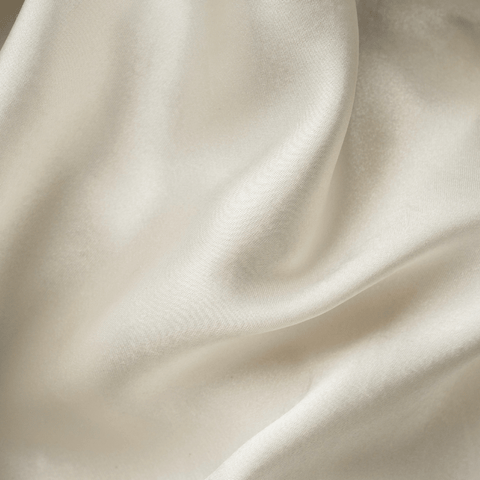
Avoid hot air drying and opt for the "cool shot" setting on your favorite hair dryer. Alternatively, air drying will also prevent dry hair!
In winter, friction from scarves and hats , as well as the wind, can also cause knots... and damage your hair. Try to tie it up when you move around a lot.
For effective protection against the sun and pollution, choose LAO shampoos , which protect the hair fiber by +50% against these attacks thanks to a patented technology based on Alsace hemp.
Of course, keep in mind that coloring and bleaching also damage hair! Use sparingly.
In short, having dry hair isn't inevitable! By taking care of your scalp, choosing the right hair products, and adopting good habits, you'll achieve stronger, healthier-looking hair. Keep in mind that prevention is key.
The effect is really visible over time, hold on!
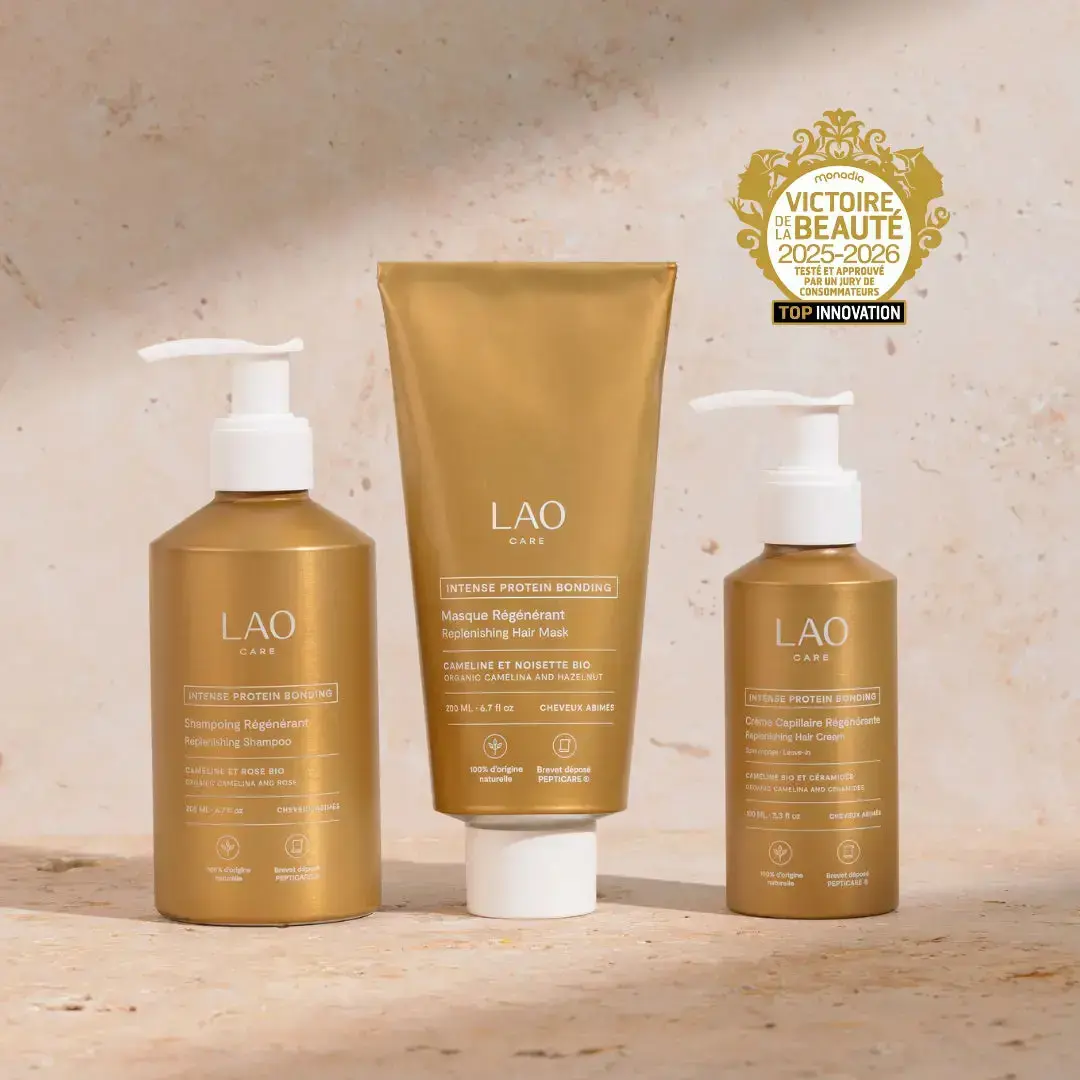
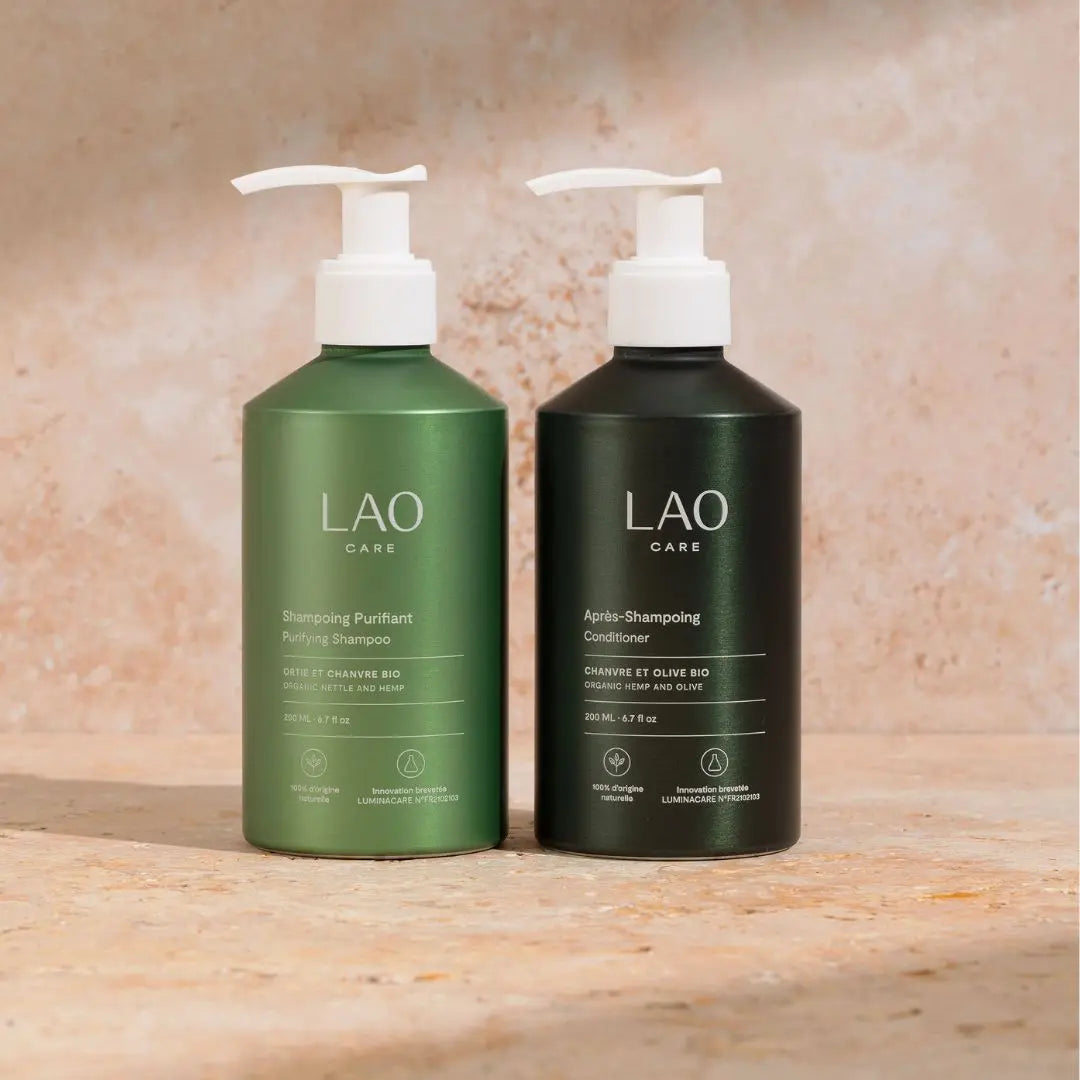
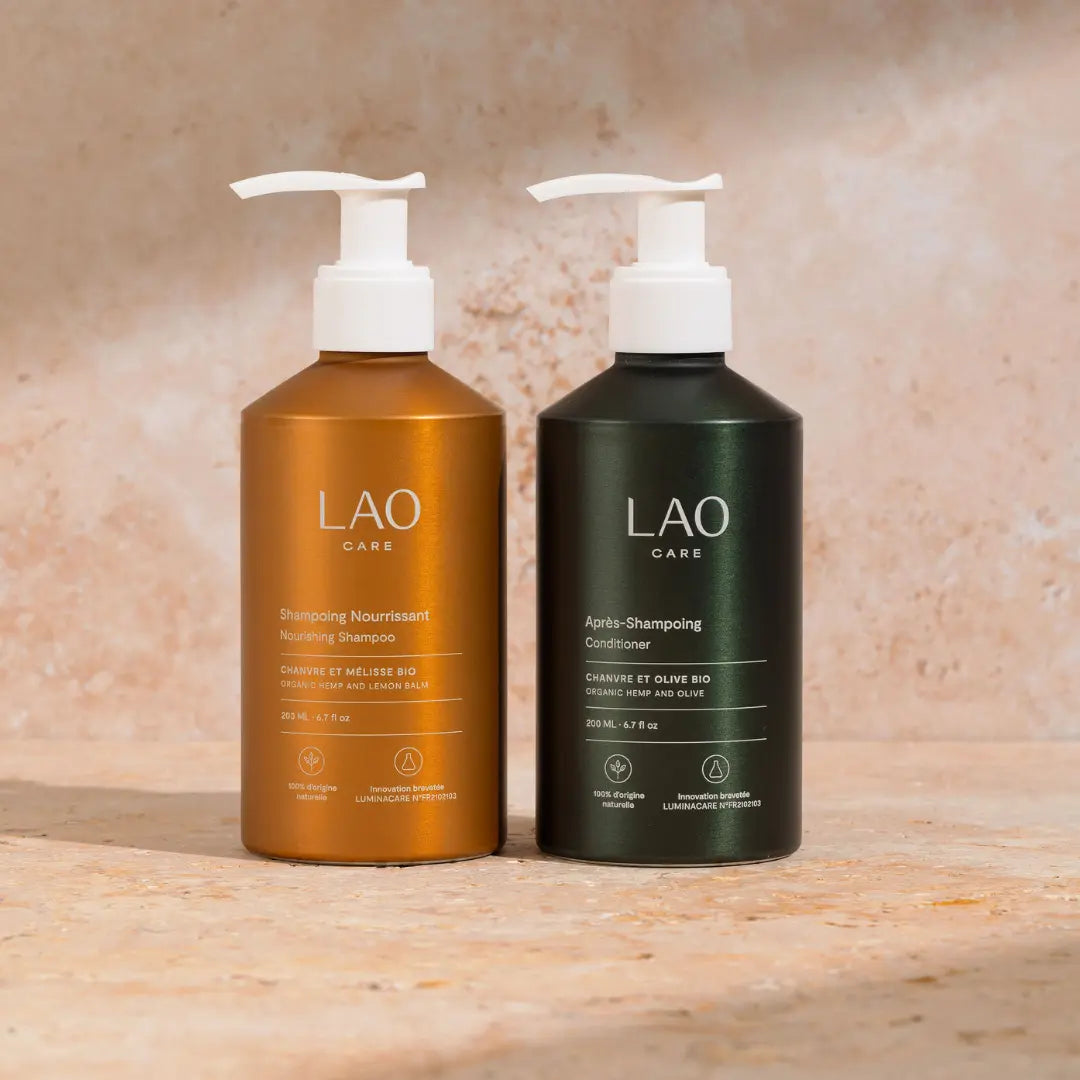
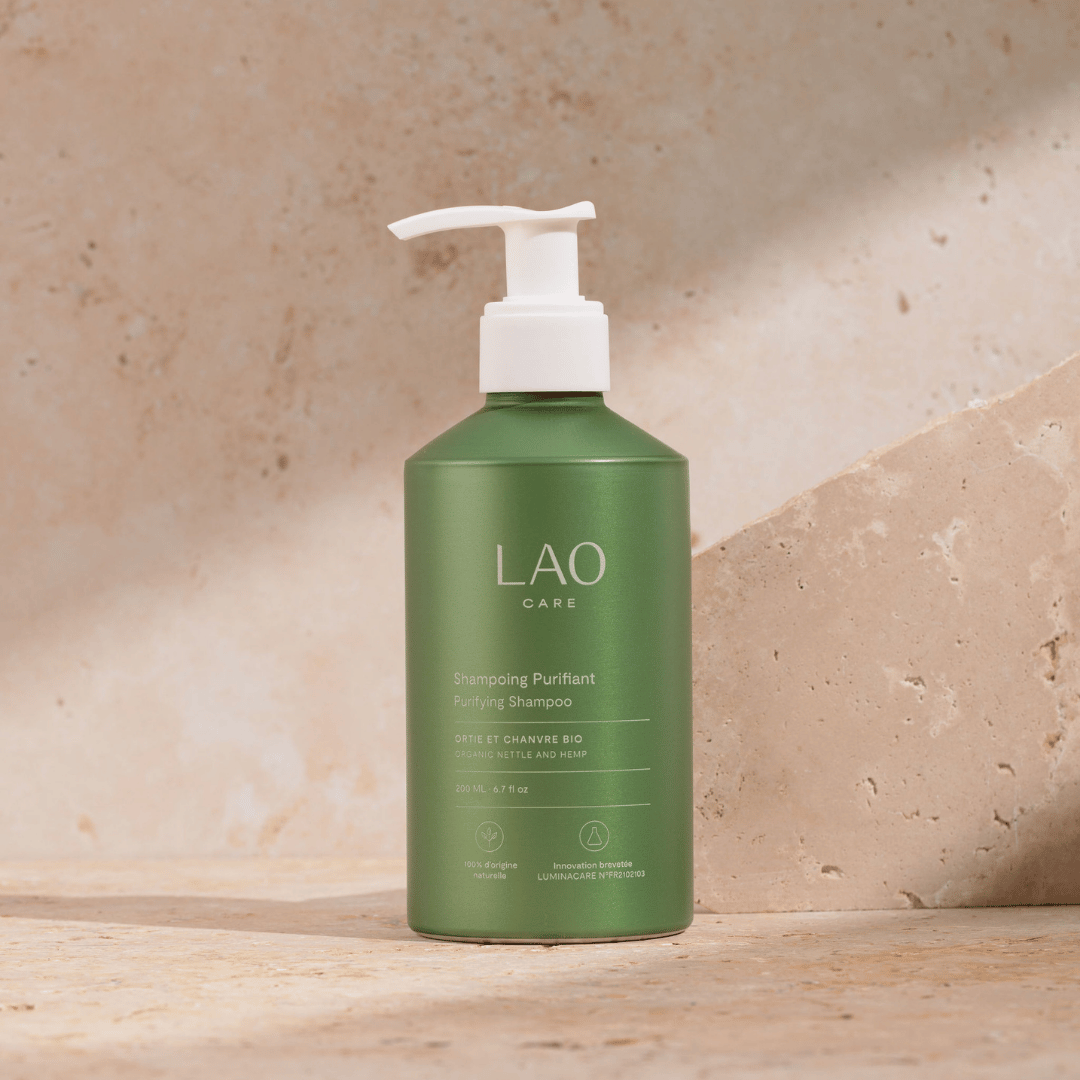
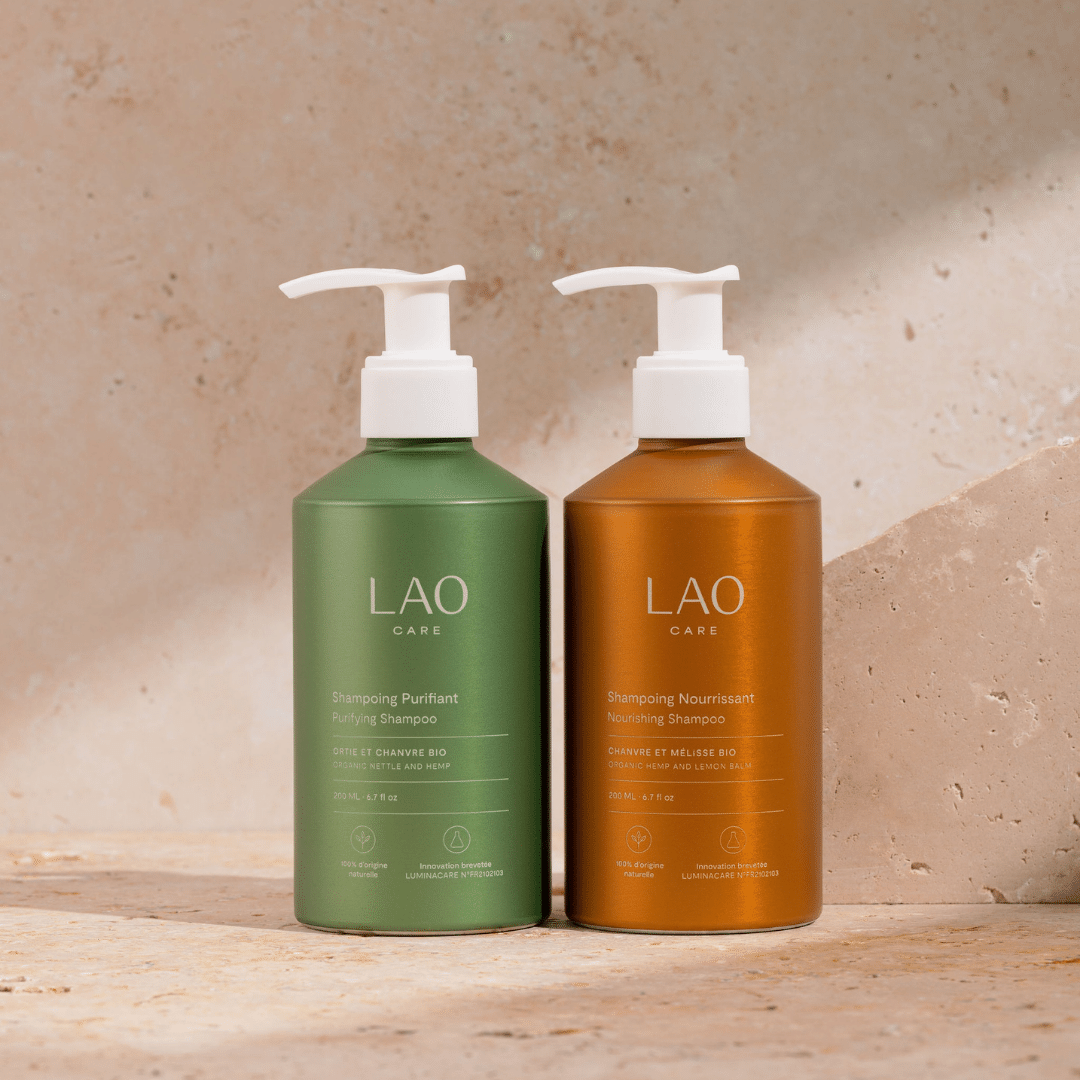
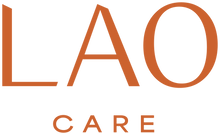
Leave a comment